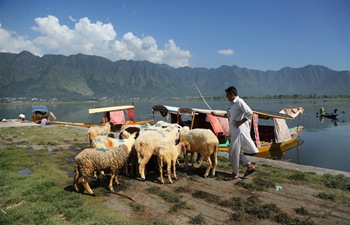CAPE TOWN, Aug. 18 (Xinhua) -- The coelacanth, the most endangered fish in South Africa and one of the rarest in the world, is threatened by oil exploration.
Older than dinosaurs, coelacanths have remained almost unchanged for 420 million years. In 2000, people found a small coelacanth colony near the iSimangaliso wetland park in South Africa. Currently, there are only about 30 coelacanths known to exist near the east coast of the country.
Now the energy group Eni plans to start several deep-water oil wells in this area, which might threaten the future of coelacanths, experts said.
"The Deepwater Horizon oil spill in the Gulf of Mexico in 2010 decimated fish populations -- so if we had an oil spill off iSimangaliso it is very likely it could wipe out these coelacanths," said Dr. Andrew Venter, who has been devoted to expansion of South Africa's protected ocean areas.
According to coelacanth expert Prof. Mike Bruton, previous research showed that the remoteness of their habitat had not protected them from exposure to pollutants. "Oil spills do not respect the boundaries of marine protected areas," he said.
"Eni always applies the highest operational and environmental standards, which often exceed local compliance regulations," the energy group responded, adding that a study about accidental spillage modelling is being independently reviewed.













